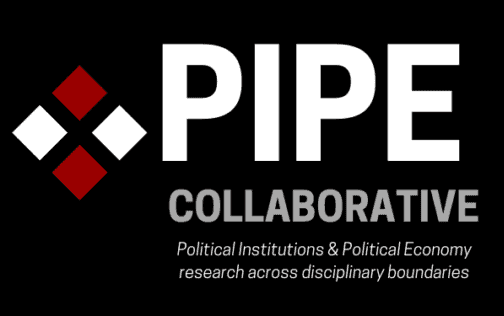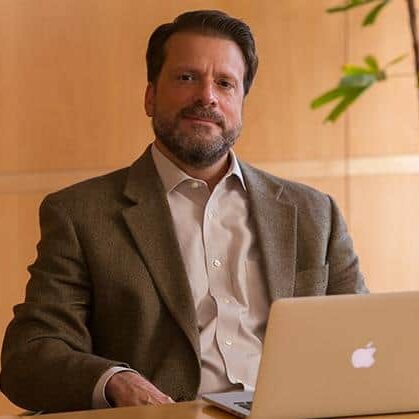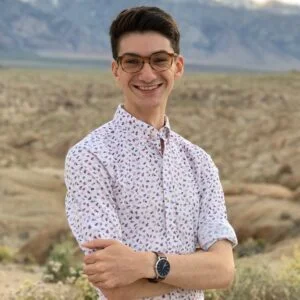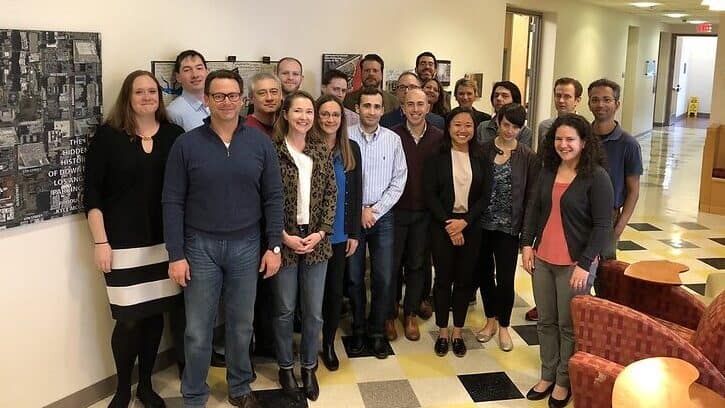About the PIPE Collaborative

The Political Institutions and Political Economy (PIPE) Collaborative is a university-wide research endeavor jointly sponsored by the Price School’s Bedrosian Center and the Office of the Provost. The PIPE Collaborative will include faculty and graduate students with common interests in various aspects of political institutions and political economy.

The PIPE Collaborative is Directed by Jeffery A. Jenkins
Provost Professor of Public Policy, Political Science, and Law Maria B. Crutcher Professor of Citizenship and Democratic Values
Director, PIPE Collaborative
A PIPE conference or event is not a gathering of the usual ‘old boys,’ but rather an assembly of diverse minds coming together to address some of the more important issues of the day.
Kristin Kanthak, Associate Professor, University of Pittsburgh
PIPE PhD Fellow Alumni

Postdoctoral Fellow, Center for Political Studies, Institute for Social Research, University of Michigan

Assistant Professor, Department of Political Science, University of California, Riverside
I find that the PIPE fills an important gap for the West Coast. While the geographic proximity of East Coast schools allows for a variety of opportunities for scholarly exchange, the same is not true here. The PIPE [Collaborative]’s reputation and funding have helped to bridge this gap by attracting top scholars from across the country to participate in such exchanges.”
Francisco Garfias, Assistant Professor, University of California, San Diego

Symposia & Conferences
- Pivotal Politics Symposium | Nov 6-7, 2017
- Parties & Partisanship in the Age of Trump Symposium | Feb 12-13, 2018
- First Annual PIPE Conference | Mar 15-16, 2018
- Studying Subnational Policy Making Symposium | Jun 5, 2018
- Race & Law Enforcement Symposium | Oct 30, 2018
- Foreign Policy in the Age of Trump Symposium | Dec 4, 2018
- Second Annual PIPE Conference | Mar 14-15, 2019
- Political Economy of Executive Politics Symposium | Oct 29, 2019
- Election Administration & Technology Symposium | Jan 28, 2020
- Third Annual PIPE Conference (postponed)
- Local Political Economy Symposium | Jan 15, 2021
- Slavery & Its Legacies Symposium | Apr 6, 2021
- Political Polarization Symposium | Nov 23, 2021
- Political Economy of Empire Symposium | Mar 8, 2022
- The Development of the American West | May 3, 2022
- Collaborative Summer Symposium | July 26, 2022
- SoCal Political Economy and Institutions Workshop | Dec 16, 2022
- Antebellum Political Economy Conference | Feb 21, 2023
- The Political Economy of the Gilded Age and Progressive Era Conference | June 6, 2023
- Legislative Leviathan 30th Anniversary Conference | August 31, 2023
- Southern Reconstruction and Its Aftermath: APD and HPE Perspectives (Extended APSA Panel) | September 1, 2023
- Parties, Politics, and Congress (Extended APSA Panel) | September 2, 2023
- The Political Economy of the Interwar Period | October 18, 2023
- The Political Economy of Housing | February 23, 2024
- The Political Economy of Native American Policy | March 5, 2024
- Political Economy of Energy Conference | April 30, 2024
- The First Annual Historical Political Economy Conference | October 19-20, 2024
- The Historical Political Economy of Race | November 19, 2024
- Artificial Intelligence and the Study of Political Institutions | December 6, 2024
- The Historical Political Economy of Water | April 2025
I participated in the PIPE conference last year (March 2019) and it was such a unique experience since the PIPE brings scholars from different subfields within Political Science as well as from Economics and Business. As a scholar of American Politics, I usually have a limited experience in interacting with scholars who study comparative politics and other areas since a typical academic conference is often organized along the narrowly defined subfields. [The] PIPE conference at USC was different.
Hye Young You, Assistant Professor of Politics, NYU
PIPE Workshops and Conferences, Fall 2025

Previous Workshops
- Measuring Policy Preferences. Chris Tausanovitch, UCLA
- Private Interests in American Public Institutions. Jordan Peterson, USC Ph.D.
- Terrorism, Gender, and the 2016 Presidential Election. Jennifer Merolla, UC Riverside
- Inside the Oval Office: Where Presidents Discipline the Presidency. Matthew Beckmann, UC Irvine
- Graeme Boushey, UC Irvine
- Legislators as Lobbyists. Melinda Ritchi, UC Riverside
- Life, Literacy, and The Pursuit of Prosperity: Party Competition & Policy Outcomes in 50 States. Thad Kousser, UC San Diego
- Foreign Real Estate Investment and Incumbent Party Support in the U.S. Steven Liao, UC Riverside
- Why Did Residual Votes Increase in the 2016 Election? R. Michael Alvarez, Caltech
- Presidents and the Congressional Black Caucus: Electoral Incentives and Budget Politics. Brian Newman, Pepperdine
- Why Legislators Don’t Compromise and What to Do About It. Sarah Anderson, UCSB
- Revolving Doors. Janna Rezaee, USC
- The Challenge of Measuring Political Polarization in the US over Time using Congressional Roll Call Votes. Jeff Lewis, UCLA
- Beyond a Reliable Vote: Coordination and Information Problems in Congressional Nominations. Kathleen Bawn, UCLA
- The Power of Economic Interests Under Direct versus Representative Democracy. John Matsusaka, USC
- Uncovering Discrimination in the Policing of Anti-Immigrant Hate Crime. Ben Newman, UC Riverside
- The Advantage of Disadvantage: Protests, Resources, and Legislative Behavior. LaGina Gause, UCSD
- Network Ties and the Political Strategies of Firms. Ben Graham, USC
- Inequality, Social Distance, and Giving. Nic Duquette, USC
- Public School Finance in California: the Golden Age. Rod Kiewiet, Caltech
- Policing for Profit: The Political Economy of Law Enforcement. Gregory DeAngelo, Claremont Graduate University
- Citizen Competence and Democratic Governance. Martin Gilens, UCLA
- Political Violence in China: Terrorism, Official Media, and Political Priorities. Phillip Potter, UVA
- White Identity and the Emergence of the Republican Party in the Early-20th Century South. Jeff Jenkins, USC
- When Citizens Peek Behind the Bureaucratic Veil: An Experiment in Shaping Public Opinion. Anthony W. Orlando, Cal Poly Pomona
- Unbundling Polarization. Chad Kendall, USC
- Implementing Particularism: Bureaucracy and the Distribution of Federal Grants. Nicolas Napolio, USC Ph.D.
- Bureaucratic Agency Problems and Legislative Oversight. Janna Rezaee King, USC
- A Woman’s Voice in the House: Gender Composition and its Consequences in Committee Hearings. Pamela Ban, UCSD
- Negotiating Bicameral Compromise. Pamela Clouser McCann, USC
- Campaign Finance Transparency Affects Legislators’ Election Outcomes and Behavior. Abby K. Wood, USC
- American Political Science Association Task Force on Congressional Reform Subcommittee on Technology and Innovation Report. Marci Harris, CEO & founder of POPVOX. Kevin Esterling, UC Riverside
- Women’s Representation and the Gendered Pipeline to Power. Danielle Thomsen, UC Irvine
- Legislative Staff and Representation in Congress: Do they understand their constituents’ policy preferences? Leah Stokes, UCSB
- Sidestepping Primary Reform: Political Action in Response to Institutional Change. Seth Hill, UCSD
- Monitoring bureaucratic performance in developing country governments. Jeffrey Weaver, USC
- By the People: Electoral Reform, Public Administration, and the California 2018 Election. Andrew Sinclair, Claremont McKenna
- Choosing Racial Identity in the United States, 1880-1940. Emily Nix, USC
- The Supply-Equity Trade-off: The Effect of Spatial Representation on the Local Housing Supply, Michael Hankinson, George Washington University (video)
- The Preference for Reciprocity in Congress, Christian Fong, University of Michigan (video)
- Political Legitimacy and the Institutional Foundations of Constitutional Government: The Case of England, Jared Rubin, Chapman (video)
- Financial Factors and the Propagation of the Great Depression, Marc Weidenmier, Chapman, (video)
- Where Self-Interest Trumps Ideology: Liberal Homeowners and Local Opposition to Housing Development, Clayton Nall, UC Santa Barbara (video)
- From Pluribus to Unum? Statebuilding in 19th Century America, Melissa Lee, Princeton, (video)
- Apartments “Destroy the Suburbs?”: Evaluating the Racialization and Nationalization of Zoning Politics, Katherine Levine Einstein, Boston University (video)
- Political Parties as Drivers of U.S. Polarization: 1927-2018 , Chad Kendall, USC (video)
- The Politics of the Pill:Gender, Framing, and Policymaking in the Battle over Birth Control, Rachel VanSickle-Ward, Pitzer College, and Kevin Wallsten, CSULB (video)
- Competition and Discrimination in Public Accommodations: Evidence from the Green Books, Trevon Logan, Ohio State (video)
- The Expertise Curse – How Policy Expertise Can Hinder Responsiveness, Miguel Pereira, USC (video)
- The Constraint of Executive Power on Ideological Behavior, Thomas Gray, UT Dallas (video)
- Vacancy Politics, Christina Kinane, Yale (video)
- Dispute Resolution in Heterogenous Societies, Volha Charnysh, MIT (video)
- Media and Ideological Movements: How Fox News Built the Tea Party, Zhao Li, Princeton (video)
- Laboratories of Democratic Backsliding, Jake Grumbach, University of Washington (video)
- What Have the Americans Ever Done for Us? Lessons from the United States in Latin America, 1895-1929, Leticia Arroyo Abad, CUNY Queens, and Noel Maurer, George Washington University (video)
- Fiscal Legibility and State Development: Theory and Evidence from Colonial Mexico, Emily Sellars, Yale (video)
- Tilly goes to Church: the Medieval and Religious Roots of European State Formation, Anna Grzymala-Busse, Stanford (video)
- “Restoration” and Representation: Legislative Consequences of Black Disfranchisement in the American South, 1879-1916, Michael Olson, Washington University in St. Louis (video)
- Reducing Racial Disparities in Crime Victimization: Evidence From Employment Discrimination Litigation, Anna Harvey, NYU (video)
- Explaining Rural Conservatism: Technological and Political Change in the Great Plains, Aditya Dasgupta, UC Merced (video)
- Police Officer Assignment and Neighborhood Crime, Bocar Ba, Duke University (video)
- Discrimination and State Capacity: Evidence from WWII U.S. Army Enlistment, Nancy Qian, Northwestern University (video)
- Bar Talk: Informal Social Interactions, Alcohol Prohibition, and Invention, Michael Andrews, University of Maryland, Baltimore County (video)
- Understanding the Success of the Know-Nothing Party, Katherine Eriksson, UC Davis (video)
- How Judges’ Professional Experience Impacts Case Outcomes: An Examination of Public Defenders and Criminal Sentencing, Maya Sen, Harvard University (video)
- Using Digitized Newspapers to Refine Historical Measures: The Case of the Boll Weevil, Randall Walsh, University of Pittsburgh (video)
- Rural Intra-Elite Conflict, Colonization, and Demands for Power-Sharing: Evidence from Khedival Egypt, Allison Spencer Hartnett, USC POIR
- Social Welfare Returns to Legislative Capacity: Evidence from the Opioid Epidemic, David Fortunato, UCSD
- How Partisan is Election Administration?, Dan Thompson, UCLA
- The Political and Economic Effects of Progressive Era Reforms in U.S. Cities: Evidence from Newly Digitized Data, Maria Carreri, UCSD
- The Economics of Civilian Victimization: Evidence from World War II Italy, Michela Giorcelli, UCLA
- The Common School Movement, D. Roderick Kiewiet, Caltech
- The Curse of Overrepresentation: Spatial Inequality, Malapportionment, and Inefficient Redistribution, Melissa Z. Rogers, Claremont Graduate University
- Does Military Service Matter? How Veteranship Motivates Legislative Collaboration, Success, & Effectiveness in the U.S. Senate, Carlos Algara, Claremont Graduate University
- Once Upon a Time in America: The Mafia and the Unions, Andrea Matranga, Chapman University
- Medieval Networks of Security and Risk, Kerice Snitker-Doten, Chapman University
- Making Policies Matter: Voter Responses to Campaign Promises, Cesi Cruz, UCLA
- Informal Elites as Local Bureaucrats: How Working as a Tax Collector Improves the Performance of City Chiefs in the D.R. Congo, Augustin Bergeron, USC Econ
- Direct Democracy Backsliding? Quantifying the Prevalence and Investigating Causes 1960-2022, John Matsusaka, USC Marshall
- The Electoral Challenge of Balancing Primary and General Electorates, Sarah Anderson, UCSB Bren
- Tending the Grassroots: How Local institutions Impact National Elections, Tine Paulsen, USC POIR
- Grant Need Index and Fair Grant Amount: Determining Who Needs and How Much, Heonuk Ha, USC Price
- How Local Newspapers Build Political Support for Infrastructure Investment, Megan Mullin, UCLA Luskin
- Spending Constraints: Why City Discretionary Funding Doesn’t Reach Needy Neighborhoods, Julia Payson, UCLA
- A Silver Lining: Women, World War I, and the 1918 Flu Pandemic, Pavel Janas, Caltech
- Appealing to Independents: Information on Negative Externalities Increases Support for Environmental Corrective Taxes, Beatrice Magistro, Caltech
- Do Polarized Issues Hold Greater Importance in Voters’ Electoral Choices? Empirical Evidence from a Novel Measurement Approach, Jacob Morrier, Caltech
- Fighting Words: How Presidents Go Public in War and Peace, David Miller, UC-Riverside
- Soldiers’ Funerals Increase Nationalism: Evidence from a Natural Experiment in Turkey, Darin Christensen, UCLA Luskin
- Gateways to White Nationalism: Leaders’ Online Rhetoric and Follower Engagement, Luwei Ying, UCLA
- Institutions, Risk, and Categories: The Political Economy of Essential Work, Pam McCann, USC Price
- Inequality and Racial Backlash: Evidence from the Reconstruction Era and the Freedmen’s Bureau, Kareem Haggag, UCLA Anderson
- Presidential Capacity, Kenneth Lowande, University of Michigan
- The Seeds of Ideology: Historical Immigration and Political Preferences in the United States, Paola Giuliano, UCLA Anderson
- In Control but Incoherent: Institutional Power and Message Discipline in Congress, Benjamin Noble, UCSD
- Bureaucratic Constraints on Embedded Liberalism: Evidence from the Trade Adjustments Assistance, Kyuwon Lee, USC POIR
- Amateurs in the Senate Folkways? The Decline of Candidate Experience in U.S. Senate Elections, 1980-2022, Isaac Hale, Occidental College
- The Limits of Electoral Gender Quotas in Rural Local Bodies, Varun KR, USC POIR
- Paving the Swamp: Consequences of Land Use Regulation Under the Clean Water Act, Hannah Druckenmiller, Caltech
- Mandatory Voter ID Reduces Turnout: Evidence from the UK Voter ID Reform, Jonathan Homola, UCLA
- Legislator Preferences for Enforcing the Separation of Powers, Nicholas Napolio, UC-Riverside
- Complementarity, Augmentation, or Substitutivity? The Impact of Generative Artificial Intelligence on the U.S. Federal Workforce, Bill Resh, USC POIR